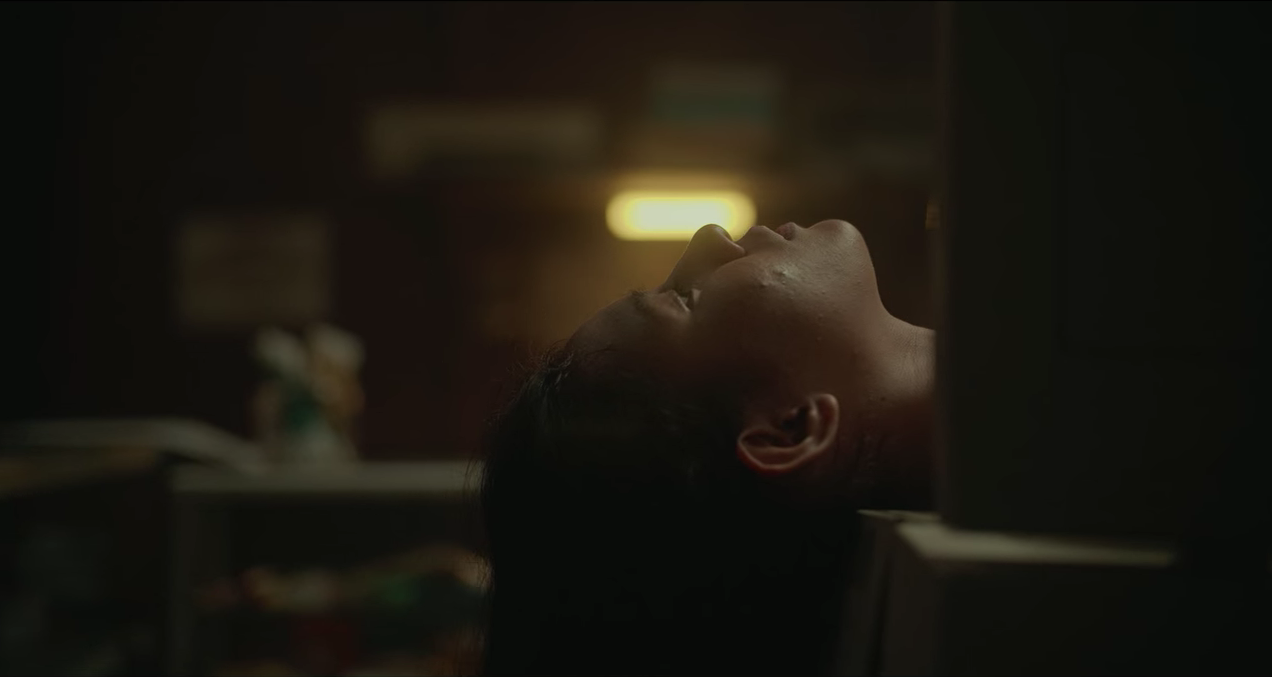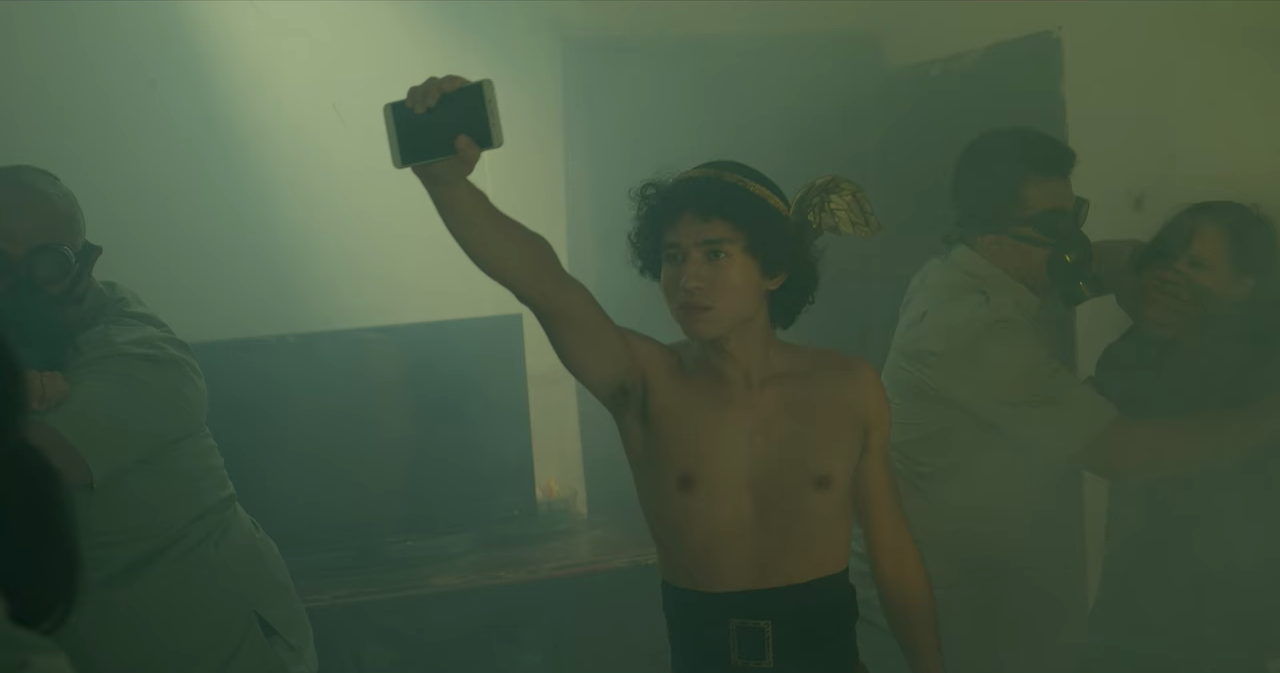A woman’s quest to trace the events that took place on a night she blacked out forms the crux of ‘Photocopier.’ Wregas Bhanuteja’s feature directorial debut makes use of beautifully haunting allegories to bring out the protagonist’s plight. Suryani, an ace student who loses her scholarship due to just one night of drinking, realizes that not all is as it seemed on the night of Mata Hari’s party. In fact, a play on Medusa and Perseus that gets acclaim is the reason the fateful party is thrown in the very first place. From the beginning, this Greek tale acts as a motif for us, so we decided to break down the intricacy of this metaphor. SPOILERS AHEAD.
What Are Medusa and Perseus in Photocopier?
The movie opens with a performance of a play revolving around Medusa and Perseus — central characters of an infamous Greek tale. To cut a long story short, Perseus’ mother, Danae, and he are banished from their homeland. King Polydectes, the ruler of the island where they eventually make their way, is quite smitten by Danae and wants to be with her. Eventually, after imprisoning the mother, Perseus is sent by the king to get Medusa’s head.

As per the fable, anyone that looks at the Gorgon will turn into stone. But with the help of Athena and a few other characters, Perseus is able to slay Medusa without any eye contact and save his mother from the clutches of King Polydectes. On the surface, it seems as though this is just another story where a man gets to be a hero and the woman — in this case, his mother — becomes the damsel in distress. Medusa takes on the role of the villain, which is amped up by the way she looks. (Snakes in place of hair does not sound like the stuff of dreams, does it?)
However, delving deeper into Greek mythology, we find out that Medusa herself has been the victim of a man’s lust. When Poseidon, the God of the Sea, becomes enamored by her, he rapes her in Athena’s temple, who in turn makes Medusa a monster. As such, the fact that ‘Photocopier’ opens with this tragic story also seems to highlight the central characters of our story — Sur and Rama.
Sur — and to some extent Farah and Tariq — may be seen as the Gorgon siblings. But it is primarily Sur who could be referred to as Medusa. After all, if Rama believes himself to be Perseus, then Sur is the “monster” who is set on destroying him, and someone with as much influence in society as Rama will do everything he can to slay the said monster.
The first half of the movie attempts to give Rama a fighting chance at proving his innocence, and Sur’s claims are repeatedly questioned. Eventually, even a viewer finds themselves casually wondering if Rama, the innocent appearing one, is actually capable of heinous acts. Sur initially just seems to be paranoid about the events of the night, especially when the CCTV footage at Rama’s house shows no obvious signs of wrongdoings.

However, the sequences in the latter half of the film also establish that Rama thinks of himself as Perseus, the slayer of Medusa. In an especially poignant scene where Rama and his accomplices fumigate Siti’s house, he comes dressed up as the Greek hero and recites the lines from Mata Hari’s play in an almost psychopathic manner. While holding the driver’s phone in his hands, Rama says, “This Pandora’s box is a container for unspeakable evils that cannot be set free! And this Perseus must banish it to oblivion.”
This whole act becomes even more terrifying when the public service announcement for the fumigation, requesting people to not forget “to drain, to cover, and to bury,” is played in the background. Wearing the invisibility helmet, which is a part of Perseus’ outfit, Rama then burns the phone, only proving that he does not repent his actions. His actions are not that of a hero, but if for the sake of this conversation, we do consider him as Perseus, then it is obvious that the metaphorical Medusa is Sur and the evidence that she, along with Farah and Tariq, has been able to acquire against him. This is why Rama calls himself the destroyer of Medusa before burning the phone and ruins the trio’s fighting chance to prove their argument.
Read More: Is Photocopier Based on a True Story?


You must be logged in to post a comment.